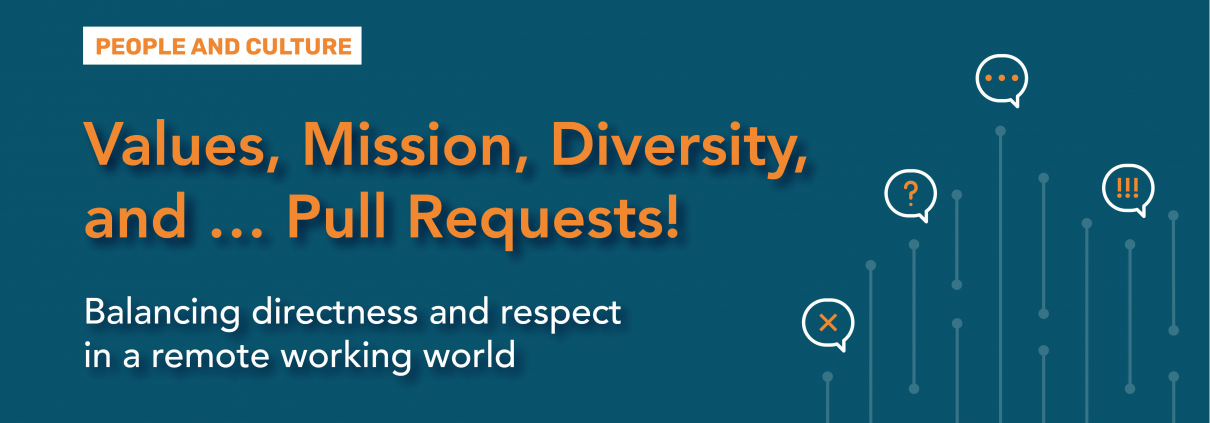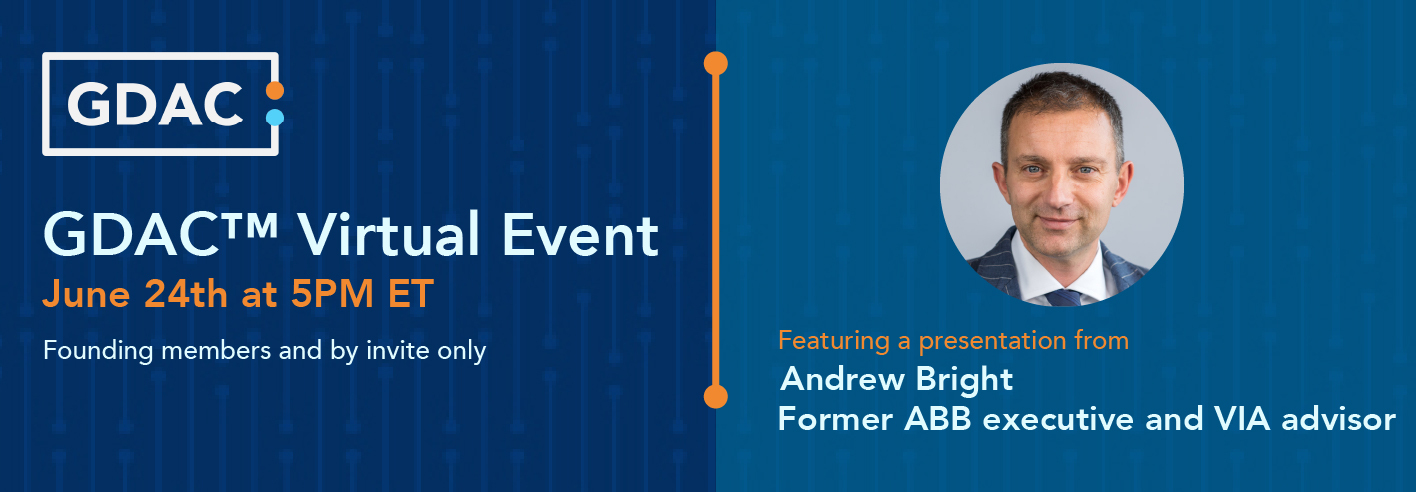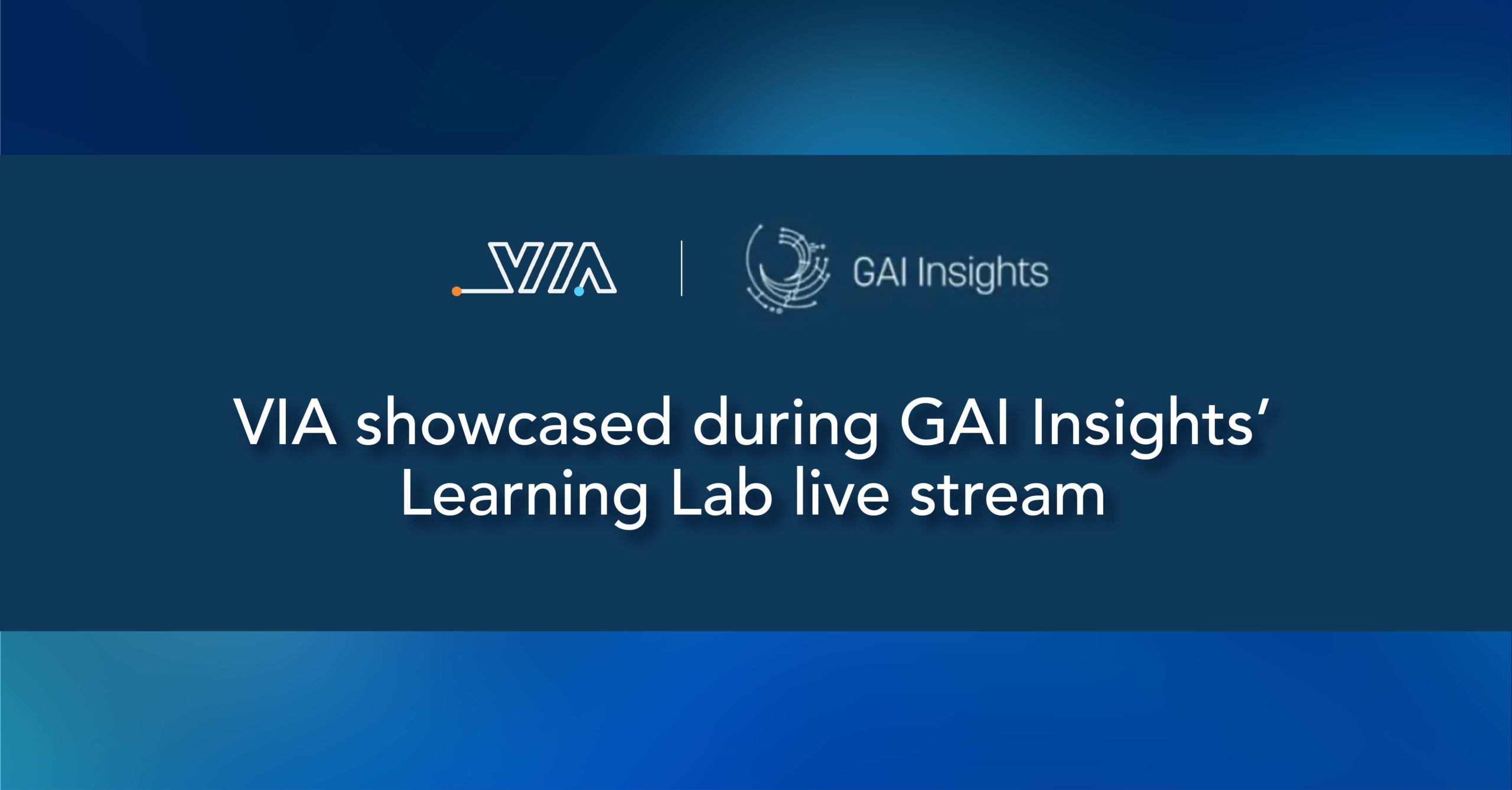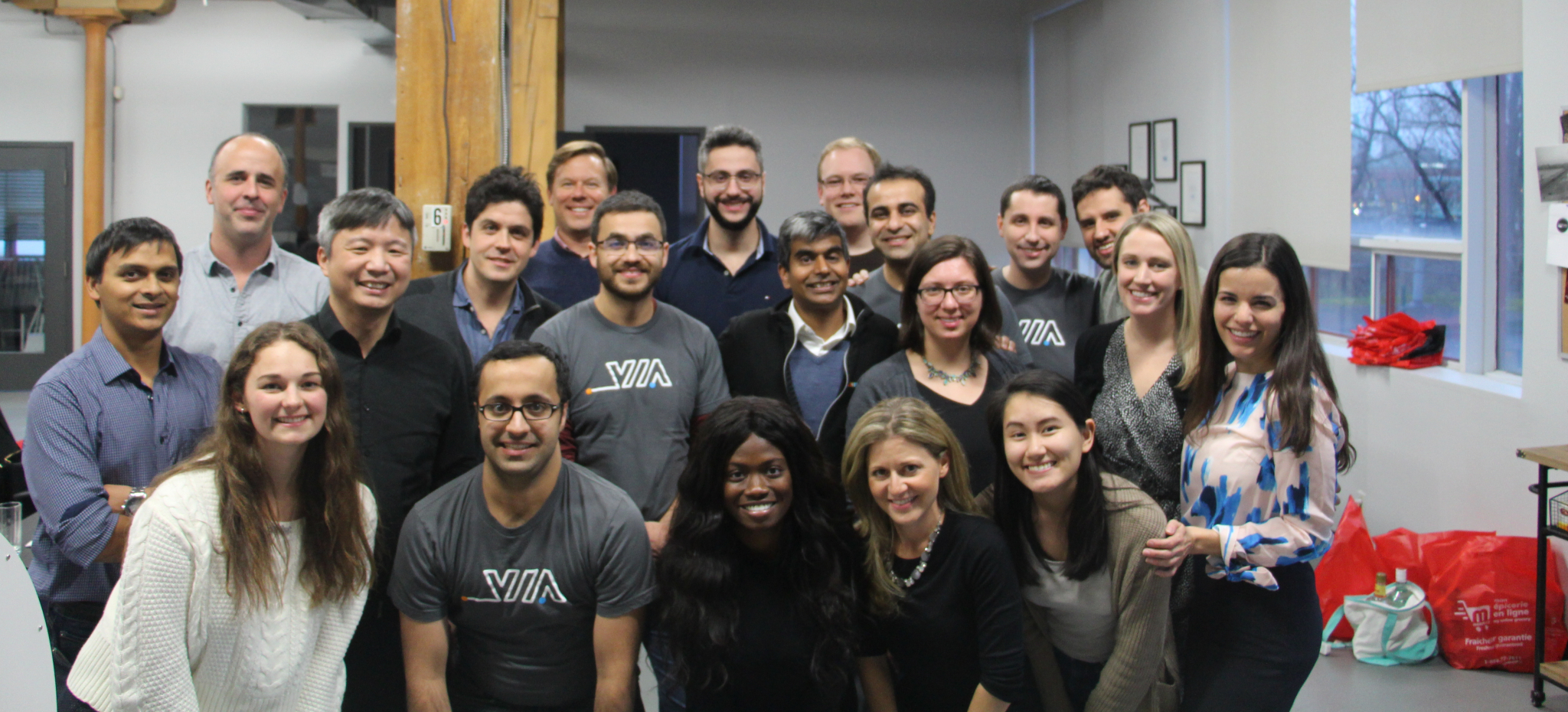Values, Mission, Diversity, and … Pull Requests!
One of VIA’s core values is: learning never goes out of style. We believe that real learning (e.g., a new instrument, a new sport, a new programming language) requires feedback from others.
At VIA, we use a common process of pull requests to review code. That is, no individual, no matter what role or how senior, can submit their code to a repo without having it first reviewed by someone else.
But, how do you give feedback directly and also respectfully? This is an example of living two VIA values: Learning never goes out of style and Respect a challenge and challenge with respect. Balancing directness and respect is especially important in a remote working world, where an increasing portion of interactions may be virtual (e.g., on Slack), which doesn’t include any context or body language cues.
Consider the following comment: “Interesting. Why did you code this way?”
Is the commenter genuinely interested in knowing why? Is it a rhetorical question actually implying that it’s wrong? You can’t tell from the note. You also can’t guarantee how it will be interpreted by the reader.
You could provide more context, but that’s work and even then something can get misinterpreted.
So … At VIA, we use four words to help disambiguate these scenarios and save time.
| VIA VOCAB WORD | MEANING |
|---|---|
| Optional | “Nice! Here’s an alternative. No pressure. There are always multiple ways to solve a problem.” |
| Curiosity | “This rocks! How did you come up with this?” |
| Required | “Dude, this has to change.” |
| Future | “Not right now. Let’s come back to this later.” |
The result? Clear feedback, succinct communication, and no emotional damage.
This is critically important at a hugely diverse company like VIA. We have team members right out of academia, folks from industry with little academic training, folks from numerous nationalities, and 86% of our technical team speak at least one language other than English.
“These “VIA vocab” words are meant to move us beyond seeking diversity at work to getting diversity to work. With this approach, we have a better chance of achieving the intended impact of diversity like an increased pace of innovation.”
Consistent with VIA’s mission to enable cleaner, safer, and more equitable communities, we are “open sourcing” our VIA vocab in hopes of encouraging others to make diversity work for them.
You can find a summary and example on GitHub.








